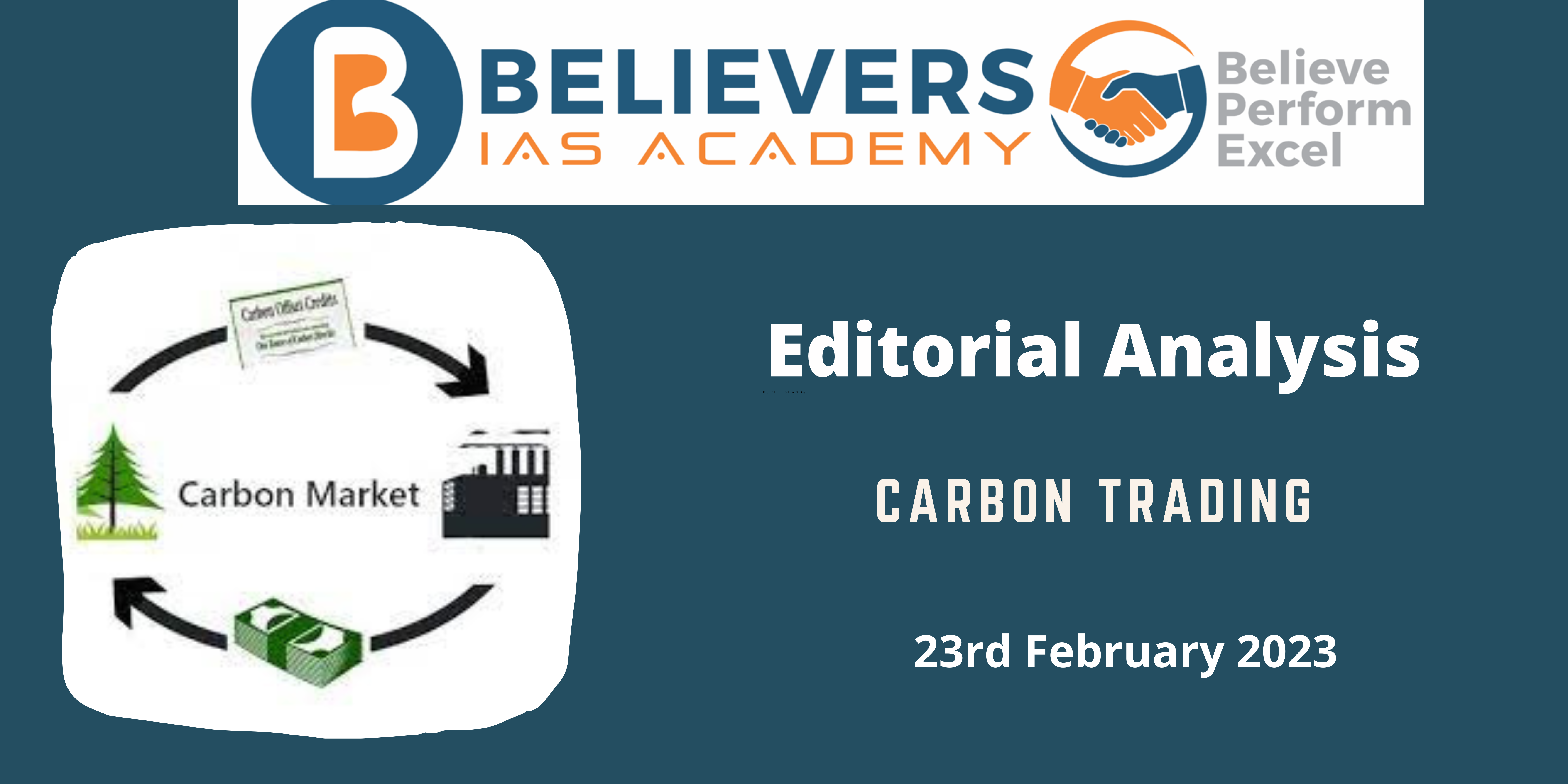Carbon trading
#GS 03 Climate Change
For Prelims
Carbon trading
- Carbon markets are a tool for reducing carbon emissions by allowing the trade of carbon credits hence making green technology profitable.
- It is done by establishing trading systems where carbon credits or allowances can be bought and sold.
- A carbon credit is a type of tradable permit that is evaluated as per United Nations standards as equal to one tonne of carbon dioxide removed, reduced, or sequestered from the atmosphere.
- Meanwhile, Carbon allowances or caps are determined by countries or governments according to their emission reduction targets.
- Article 6 of the Paris Agreement allows the use of international carbon markets by countries to fulfil their Nationally Determined Contributions.
Energy Conservation (Amendment) Bill, 2022
- Indian Parliament passed the Energy Conservation (Amendment) Bill, 2022 in order to establish Carbon Markets in India and specify a Carbon Trading Scheme.
- The Bill empowers the Union Government to specify a carbon credits trading scheme.
- As per the Bill, the central government or an authorised agency will issue carbon credit certificates to companies or individuals who registered and are compliant with the scheme.
- These carbon credit certificates will be tradeable in nature and will allow other persons to buy carbon credit certificates on a voluntary basis.
- The Central Electricity Regulatory Commission (CERC) was designated to be the regulator and that the carbon price was to be market determined.
- The Bill also covers large buildings i.e., those with connected load of 100 kilowatt and above for compliance with energy conservation and sustainability codes.
- EU-Emissions Trading Systems (ETS) is an exemplary example for the creation of a Carbon Market.
- Under ETS, the emission limits on industrial sectors require industries to either cut emissions or buy government-certified permits from companies that cut more emissions than required or were auctioned by governments.
Source “A clean gamble“




